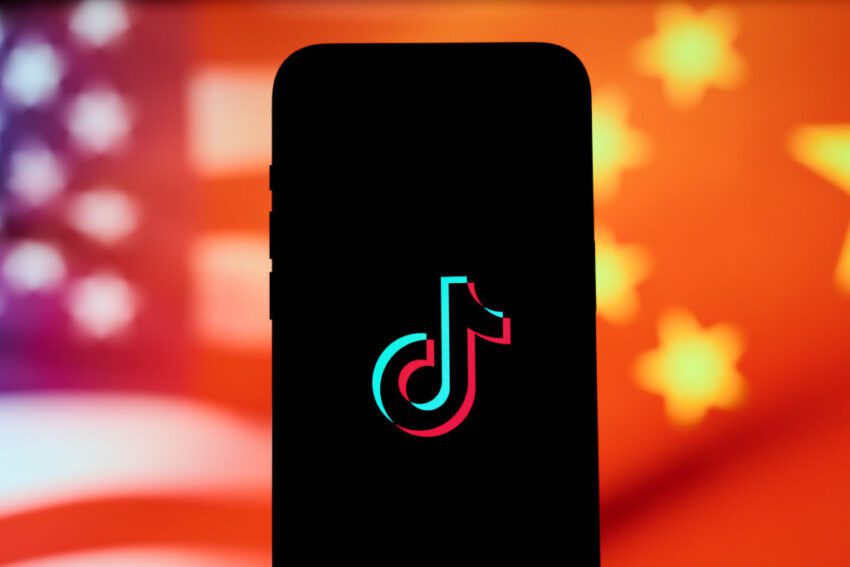
trump and bytedance tout tiktok deal approval The ongoing negotiations between the United States and ByteDance regarding TikTok’s operations in the U.S. have reached a significant milestone, as both parties claim to have secured a deal approval.
trump and bytedance tout tiktok deal approval
Background of the TikTok Controversy
Since its rise to prominence, TikTok has become a cultural phenomenon, particularly among younger audiences. However, its ownership by Chinese company ByteDance has raised national security concerns in the United States. In January 2025, the U.S. government officially banned TikTok, citing fears that user data could be accessed by the Chinese government. This ban was part of a broader scrutiny of Chinese technology companies operating in the U.S., which has been a contentious issue in U.S.-China relations.
The ban prompted immediate backlash from TikTok users, content creators, and businesses that rely on the platform for marketing and engagement. Many argued that the app’s removal would stifle creativity and economic opportunities. In response, the U.S. government and ByteDance began negotiations to find a solution that would allow TikTok to continue operating within the country while addressing security concerns.
Details of the Deal Approval
While both former President Donald Trump and ByteDance have expressed optimism about the deal approval, specific details regarding the agreement have yet to be disclosed. This lack of transparency has led to speculation about the terms and conditions that may be included in the deal.
Key Stakeholders Involved
Several key stakeholders are involved in the negotiations, including:
- ByteDance: The parent company of TikTok, which has been under pressure to ensure the app’s compliance with U.S. regulations.
- U.S. Government: Represented by various agencies, including the Department of Commerce and the Committee on Foreign Investment in the United States (CFIUS), which evaluates foreign investments for national security risks.
- Content Creators: Influencers and businesses that utilize TikTok for marketing and engagement, who have been vocal about the app’s importance to their livelihoods.
- Users: The millions of Americans who use TikTok for entertainment and social interaction, many of whom have expressed their concerns about the ban.
Implications of the Deal
The approval of a deal between the U.S. government and ByteDance could have far-reaching implications for both parties. For ByteDance, securing a deal would mean the continuation of its operations in one of its largest markets. This would not only preserve revenue streams but also maintain its user base, which is crucial for the platform’s growth.
For the U.S. government, allowing TikTok to operate under specific conditions could serve as a precedent for future negotiations with other foreign technology companies. It may also help to alleviate some public backlash regarding the ban, especially among younger voters who are significant users of the platform.
Potential Regulatory Measures
While the specifics of the deal are still unclear, it is likely that any agreement will include stringent regulatory measures aimed at protecting user data. Possible measures could include:
- Data Localization: Requiring TikTok to store U.S. user data on servers located within the United States.
- Transparency Reports: Mandating regular reports on data access and usage to ensure compliance with U.S. laws.
- Third-Party Audits: Implementing independent audits to verify that TikTok is adhering to the agreed-upon terms.
Reactions from Stakeholders
The announcement of the deal approval has elicited a range of reactions from various stakeholders. Content creators and users have expressed cautious optimism, hoping that the deal will lead to a resolution that allows TikTok to continue operating without interruption.
Content creator Sarah Johnson, who has over 1 million followers on TikTok, stated, “I just want to keep creating content for my audience. TikTok has been a platform where I can express myself and connect with people. I hope this deal means we can continue to do that.” Her sentiments reflect the broader concerns of many users who rely on the platform for their livelihoods.
On the other hand, some critics remain skeptical about the effectiveness of the deal. National security experts have raised concerns that even with regulatory measures in place, the potential for data misuse remains. “The core issue of data privacy and national security has not been resolved simply by allowing TikTok to operate under certain conditions,” said Dr. Emily Chen, a cybersecurity expert. “The U.S. needs to remain vigilant in monitoring foreign technology companies.” This perspective highlights the ongoing debate about the balance between technological innovation and national security.
Future of TikTok in the U.S.
The future of TikTok in the United States hinges on the successful implementation of the deal and the subsequent regulatory measures that may be put in place. If the agreement is executed effectively, it could pave the way for a more stable relationship between the U.S. government and foreign technology companies.
However, the situation remains fluid, and the potential for further complications exists. The political landscape in the U.S. is ever-changing, and any shifts in administration or policy could impact the terms of the deal. Additionally, the ongoing scrutiny of foreign technology companies may lead to further regulations that could affect TikTok’s operations.
Potential Challenges Ahead
Even with a deal in place, TikTok may face several challenges moving forward:
- Public Trust: Rebuilding trust among users and content creators who may still harbor concerns about data privacy.
- Compliance Costs: The financial burden of implementing regulatory measures could impact ByteDance’s profitability.
- Competition: As TikTok navigates its future, competitors like Instagram and YouTube are continually evolving, potentially siphoning off users and engagement.
Conclusion
The approval of a deal between the U.S. government and ByteDance regarding TikTok marks a pivotal moment in the ongoing saga surrounding the app’s future in the United States. While both parties have expressed optimism, the lack of specific details raises questions about the effectiveness and sustainability of the agreement. As negotiations continue, the implications for users, content creators, and the broader tech landscape remain to be seen.
Ultimately, the outcome of this deal could set a precedent for how foreign technology companies operate in the U.S. and how national security concerns are addressed in an increasingly interconnected world. The stakes are high, and all eyes will be on the developments in the coming weeks and months.
Source: Original report
Was this helpful?
Last Modified: September 20, 2025 at 1:40 am
0 views















